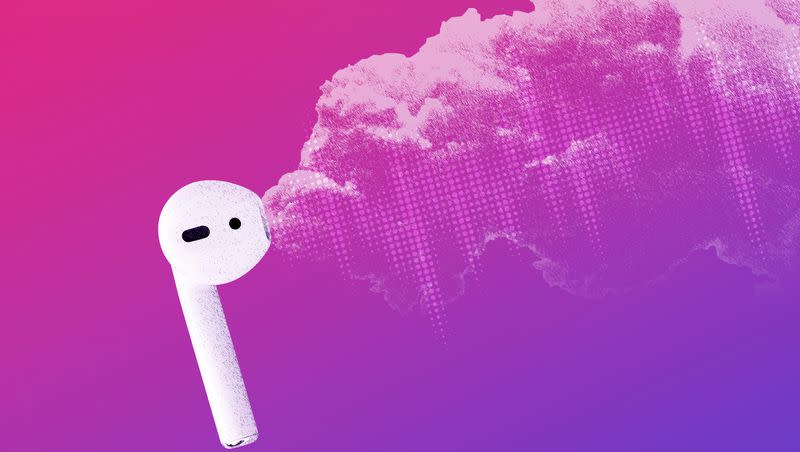Perspective: The noise pollution we inflict on ourselves

A recent New York Times article detailed the “unrecognized health threat” of noise pollution. Ranging from traffic noise to rock concerts, noise pollution constitutes “loud or inescapable sounds (that) can cause hearing loss, stress, and high blood pressure,” among other health problems.
I felt this stress while buying new tires recently: the man at the desk was trying to upsell my car problems as Will Smith battled zombies on the television behind his head. That noise left me feeling agitated as my blood pumped through tighter veins.
But the problem of noise pollution is not just a health concern — it is a serious social issue that, in many ways, we inflict upon ourselves unawares.
Much of the noise pollution we experience every day — beyond the noise of supply chain logistics or rock concerts — comes by our own choice. Many of us either begin, spend and/or end the day with Apple or Sony or Bose lodged in our ear canals (I do all the time), driving us inward toward seclusion instead of outward toward connection.
This is the noise pollution of the internet and streaming, of the sea of voices that continually drown both our own voices and the voices of those around us, all to the detriment of our social fabric and our own families.
According to the International Federation of the Phonographic Industry, music streaming alone increased to an average of 20.1 hours per week per listener in 2022, up from 18.4 hours per week in 2021. That is an average of almost three hours of music each day, not including daily television noise, podcast noise, TikTok noise, YouTube noise and more.
The constant streaming of content becomes a pollutant to our family and social life as we spend less time with those we love and more time with those who know nothing of us. As online noise and “connectedness” increases, we become inversely disconnected from the real world where life actually takes place, and that disconnect takes a toll on reality.
I see this frequently on the university campus where I teach. Each year there is an increasingly electronic silence that permeates most passings and goings. Very rarely do I hear students speaking together and laughing while walking between class periods anymore. Most are plugged into different worlds, disconnected from the sounds and rhythms of life that surround them, including their own.
The disconnect increases in the classroom where students are now only loosely connected to each other. But the second the bell rings, the ear pods return to their proper place, and all is well again in the peaceful, risk-free serenity of the cloud.
Sadly, as our earbuds grow ever louder, we as human beings become increasingly quiet and separated from one another. We are becoming an increasingly wordless species, drenched in the empty void of illusory digital discussions.
We type thousands of words and speak less; we press play to listen yet hardly ever sing; we download the next episode although watching it or listening to it means we sacrifice time with our own families, and far too many of us quietly interact with a screen as our kids plead for attention.
Related
The city where I live recently implemented electric powered public buses. When the bus makes a stop there is no engine to roar in the background, leaving the riders in almost total silence. This is all the more noticeable since no one on board talks to one another.
In his book “The End of Night,” Paul Bogard writes on the negative effects of light pollution. To illustrate how little the average Westerner knows of the stars, he uses Van Gogh’s famous “Starry Night” painting from 1889.
Bogard quotes Van Gogh who described the celestial French night as a “deep blue sky … with clouds deeper than the fundamental blue of intense cobalt, and others of a clearer blue, like the blue whiteness of the Milky Way. In the blue depth the stars were sparkling, greenish, yellow, white, pink … opals you might call them, emeralds, lapis lazuli, rubies, sapphires.”
If such could describe the night sky before electric lights, one must ask which is more exaggerated and fictional: the Impressionist painting, or the light-polluted sky of tonight?
The equivalent to noise pollution would be not knowing that a tweet comes from a bird in the greens and blues of nature, not from the dark sea of glass on your phone.
While the solutions to the noise pollution presented by transportation and cosmopolitan living are more complicated, the solution for social noise pollution is quite simple: unplug and listen.
There are many human beings around us begging for attention, most especially our loved ones. Unplug some from the content, and you will find the beginnings of contentment as of emeralds, lapis lazuli, rubies and sapphires.
Scott Raines is a writer and doctoral student at the University of Kansas.

